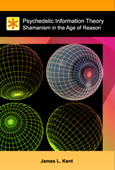
Search Results : NMDA
Showing 1 to 6 of 6
A systems model of altered consciousness: integrating natural and drug-induced psychoses
... drugs, such as the N-methyl-D-aspartate (nmda) glutamate receptor antagonist, ketamine, and the serotonin-2A (5-HT(2A)) receptor agonist, psilocybin, suggest that the hallucinogenic effects of these drugs arise, at least in part, from their ...
The Case Against the Spirit Model of Psychedelic Action
... waking/dreaming states, and the Ketamine/nmda model of schizophrenia. Hallucinations, mystical experience, and delusions of grandeur are par for the course with psychosis, as is paranoia and irrational belief, yet many people who use psyched...
... to the glutamate sensitive N-methyl-D-aspartate (nmda) receptor complex, which serves as their common functional denominator. Arguments and speculations are presented in favor of the view that, the three events might be considered as functional mode...
... dextromethorphan (DXM) by blocking associative nmda pathways necessary for fast sensory binding.9 ...
... (PCP), and dextromethorphan (DXM) interrupt nmda glutamate sensory signaling pathways; these pathways mediate fast sensory signal projection through the brain. Anticholinergic deliriants like scopolamine and atropine interrupt cholinergic modul...
From drugs to deprivation: a Bayesian framework for understanding models of psychosis
... for the common and the distinctive effects of nmda receptor antagonists, serotonergic hallucinogens, cannabinoids and dopamine agonists. Conclusion By acknowledging the importance of perception and perceptual aberration in mediating the posit...
Showing 1 to 6 of 6
